This is an old revision of the document!
Table of Contents
Politics
 As Solar Punk envisions a free and egalitarian world, its politics take the form of Libertarian Socialism; a group of anti-authoritarian political philosophies inside the socialist movement that rejects the conception of socialism as centralized state ownership and control of the economy. Libertarian socialism criticizes wage labour relationships within the workplace, instead emphasizing workers' self-management of the workplace and decentralized structures of directly democratic political organization. It often rejects the state itself, and asserts that a society based on freedom and justice can be achieved through abolishing authoritarian institutions that control certain means of production and subordinate the majority to an owning class or political and economic elite. All of this is generally done within a general call for libertarian and voluntary human relationships through the identification, criticism, and practical dismantling of illegitimate authority in all aspects of human life.
As Solar Punk envisions a free and egalitarian world, its politics take the form of Libertarian Socialism; a group of anti-authoritarian political philosophies inside the socialist movement that rejects the conception of socialism as centralized state ownership and control of the economy. Libertarian socialism criticizes wage labour relationships within the workplace, instead emphasizing workers' self-management of the workplace and decentralized structures of directly democratic political organization. It often rejects the state itself, and asserts that a society based on freedom and justice can be achieved through abolishing authoritarian institutions that control certain means of production and subordinate the majority to an owning class or political and economic elite. All of this is generally done within a general call for libertarian and voluntary human relationships through the identification, criticism, and practical dismantling of illegitimate authority in all aspects of human life.
Social Ecology and Communalism
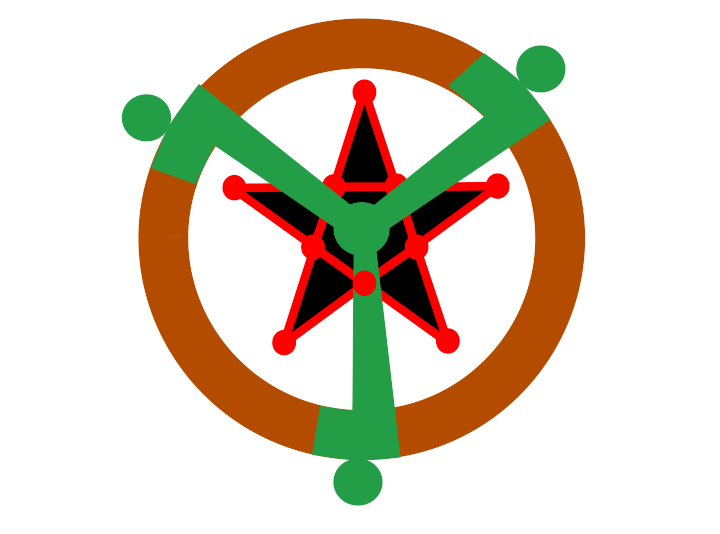 Communalism is a system of government in which virtually autonomous local communities are brought together in a confederation under the principles and practice of communal ownership. Social Ecology is its recognition of the often-overlooked fact that nearly all our present ecological problems arise from deep-seated social problems.
Communalism is a system of government in which virtually autonomous local communities are brought together in a confederation under the principles and practice of communal ownership. Social Ecology is its recognition of the often-overlooked fact that nearly all our present ecological problems arise from deep-seated social problems.
- Social Ecology and Communalism - Murray Bookchin
- Remaking Society: Pathways to a Green Future - Murray Bookchin
- The Ecology of Freedom - Murray Bookchin (Audiobook)
- Communalism: A Liberatory Alternative - Marcus & Stephanie Amargi (Audiobook)
- Toward a Communalist Approach - Murray Bookchin
Dialectical Naturalism
Dialectical naturalism is the philosophical underpinning of social ecology. Through dialectical naturalism we reason the evolutionary becoming of the biological world or “first nature”, the emergence of the realm of culture or “second nature”, and the potentiality for “free nature”—a rational and ecological society.
- The Philosophy of Social Ecology: Essays on Dialectical Naturalism - Murray Bookchin
- The Trouble with Wilderness; or, Getting Back to the Wrong Nature - William Cronon
- Institute for Social Ecology Class - 1988 (YouTube) - Murray Bookchin
- Second Nature Lecture - 1996 (YouTube) - Murray Bookchin
The History of Hierarchy
From dialectical analysis we can deduce a history of hierarchy, which traces the emergence of hierarchy from the rise of government by elders, the emergence of patriarchy, shamanistic guilds, warrior groups, chiefdoms, and eventually the state.
- The Murray Bookchin Reader - Murray Bookchin & Janet Biehl (Audiobook)
- Cities Against Centralization - Greg Bryant
- Sociobiology or Social Ecology - Murray Bookchin
- Debt: The First 5000 Years - David Graeber
- People Without Government: An Anthropology of Anarchy - Harold Barclay
- Advanced Concepts Class - 1996 (YouTube) - Murray Bookchin
Ecological Critique
 With history for evidence, an ecological critique finds that the idea of dominating nature emerges from the domination of human by human. Economic, ethnic, cultural, and gender conflicts, among many others, lie at the core of the most serious ecological problems we face today. Minimally, an ecological society must eliminate the domination of human by human.
With history for evidence, an ecological critique finds that the idea of dominating nature emerges from the domination of human by human. Economic, ethnic, cultural, and gender conflicts, among many others, lie at the core of the most serious ecological problems we face today. Minimally, an ecological society must eliminate the domination of human by human.
- Death of a Small Planet - Murray Bookchin
- Will Ecology become 'The Dismal Science'? - Murray Bookchin
- Social Ecology versus Deep Ecology - Murray Bookchin
- The Population Myth - Murray Bookchin
- Rethinking Ecofeminist Politics - Janet Biehl
- Liberating Life: Woman's Revolution - Abdullah Öcalan
- Ambiguities of Animal Rights - Peter Staudenmaier
- Waterloo Lecture - 1985 (YouTube) - Murray Bookchin
Libertarian Municipalism
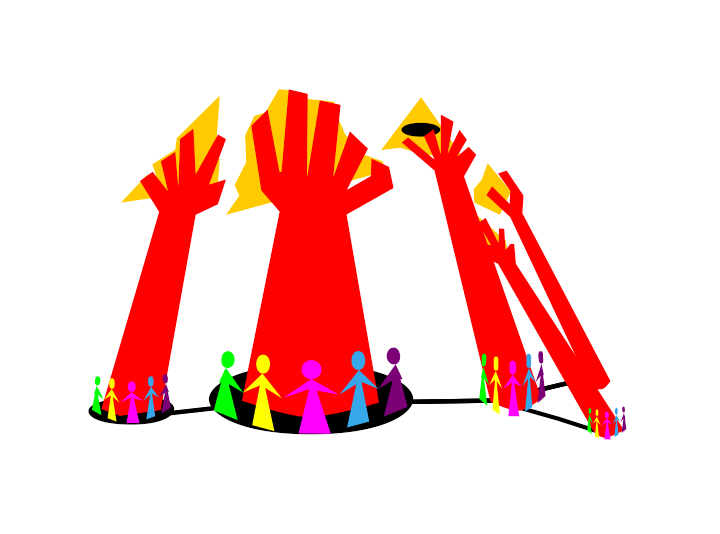 We develop a political strategy, from ecological critique, for a libertarian municipalist society - organised as a confederation of directly democratic municipal assemblies, production would be municipalised and brought under the control of the assemblies, and the market economy would be replaced with a moral economy.
We develop a political strategy, from ecological critique, for a libertarian municipalist society - organised as a confederation of directly democratic municipal assemblies, production would be municipalised and brought under the control of the assemblies, and the market economy would be replaced with a moral economy.
- Urbanization Without Cities: The Rise and Decline of Citizenship - Murray Bookchin
- The Next Revolution: Popular Assemblies & The Promise of Direct Democracy - Murray Bookchin (Audiobook)
- Democratic Confederalism - Abdullah Öcalan (Audiobook)
- Democratic Nation - Abdullah Öcalan
- Libertarian Municipalism: An Overview - Murray Bookchin
- The Left That Was: A Personal Reflection - Murray Bookchin
- Thoughts on Libertarian Municipalism - Murray Bookchin
- The Politics of Social Ecology: Libertarian Municipalism - Janet Biehl (Audiobook)
- Forms of Freedom Talk - 1985 (YouTube) - Murray Bookchin
Utopian Vision
 Seeking to reconstruct society both physically and institutionally, this utopianism includes practical experiments and alternative technology.
Seeking to reconstruct society both physically and institutionally, this utopianism includes practical experiments and alternative technology.
- The Utopian Impulse: Reflections on a Tradition - Dan Chodorkoff
- Institute for Social Ecology Interview - 2012 (YouTube) - Dan Chodorkoff
Anarchism
 Anarchism is a political philosophy that advocates self-governed societies based on voluntary, cooperative stateless societies, rejecting hierarchies they view as unjust. Anarchism holds capitalism, the state, and representative democracy to be undesirable, unnecessary and harmful. Anarchism specifically entails opposing authority or hierarchical organisation in the conduct of all human relations. Anarchism does not offer a fixed body of doctrine from a single particular world view. Many types and traditions of anarchism exist, ranging from collectivism to individualism, not all of which are mutually exclusive.
Anarchism is a political philosophy that advocates self-governed societies based on voluntary, cooperative stateless societies, rejecting hierarchies they view as unjust. Anarchism holds capitalism, the state, and representative democracy to be undesirable, unnecessary and harmful. Anarchism specifically entails opposing authority or hierarchical organisation in the conduct of all human relations. Anarchism does not offer a fixed body of doctrine from a single particular world view. Many types and traditions of anarchism exist, ranging from collectivism to individualism, not all of which are mutually exclusive.
Works
- Anarchy Works - Peter Gelderloos
- To Change Everything, an anarchist appeal - CrimethInc Ex-Workers Collective
- We House, You are Housed, They are Homeless - Colin Ward
Libraries
Classical Schools of Thought
Anarcho-Communism
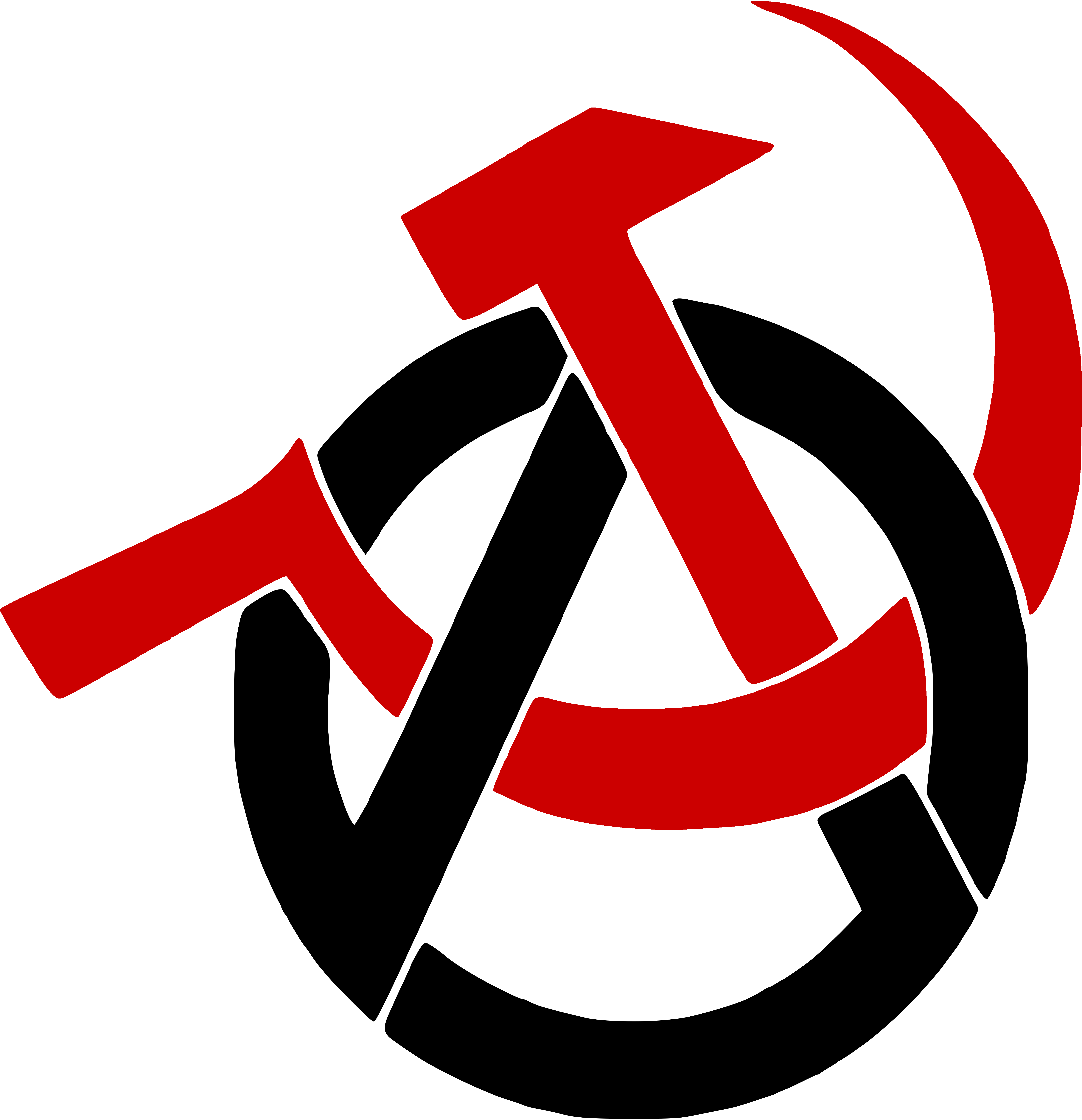 Anarcho-Communism advocates the abolition of the state, capitalism, wage labour and private property in favor of common ownership of the means of production, direct democracy, cooperativism, equal distribution of valuables, and a horizontal network of workers' councils with production and consumption based on the guiding principle: “From each according to his ability, to each according to his needs”.
Anarcho-Communism advocates the abolition of the state, capitalism, wage labour and private property in favor of common ownership of the means of production, direct democracy, cooperativism, equal distribution of valuables, and a horizontal network of workers' councils with production and consumption based on the guiding principle: “From each according to his ability, to each according to his needs”.
- The Conquest of Bread - Peter Kropotkin (Audiobook)
- Fields, Factories and Workshops - Peter Kropotkin
- Mutual Aid: A Factor of Evolution - Peter Kropotkin (Audiobook)
- The Manifesto of Equals - Gracchus Babeuf (Audiobook)
- What is Communist Anarchism? - Alexander Berkman
- The Right to be Greedy - For Ourselves
- Collected Works - Ricardo Flores Magón
- Land and Liberty - Ricardo Flores Magón
Mutualism
 Mutualism is an economic theory that advocates a society with free markets and occupation and use, or usufruct property norms. Mutualism is based on a version of the labor theory of value holding that when labor or its product is sold, in exchange it ought to receive goods or services embodying “the amount of labor necessary to produce an article of exactly similar and equal utility”.
Mutualism is an economic theory that advocates a society with free markets and occupation and use, or usufruct property norms. Mutualism is based on a version of the labor theory of value holding that when labor or its product is sold, in exchange it ought to receive goods or services embodying “the amount of labor necessary to produce an article of exactly similar and equal utility”.
- What Is Property? - Pierre Joseph Proudhon (Audiobook)
- The Principle of Federation - Pierre Joseph Proudhon
- The Economics of Anarchy - Dyer Lum
- Studies In Mutualist Political Economy - Kevin Carson
- Organization Theory - Kevin Carson
- A Mutualist FAQ - Anonymous
Individualist Anarchism
 Individualist anarchism refers to several traditions of thought that emphasize the individual and his will over external determinants such as groups, society, traditions and ideological systems. Individualist anarchism is not a single philosophy, but it refers to a group of individualistic philosophies that hold “if the individual has the right to govern himself, all external government is tyranny”.
Individualist anarchism refers to several traditions of thought that emphasize the individual and his will over external determinants such as groups, society, traditions and ideological systems. Individualist anarchism is not a single philosophy, but it refers to a group of individualistic philosophies that hold “if the individual has the right to govern himself, all external government is tyranny”.
- Political Justice - William Godwin
- The Gay Science - Friedrich Nietzsche (Audiobook)
- Thus Spoke Zarathustra - Friedrich Nietzsche (Audiobook)
- Beyond Good and Evil - Friedrich Nietzsche (Audiobook)
- The Soul of Man Under Socialism - Oscar Wilde
- Towards the Creative Nothing - Renzo Novatore
- The Abolition of Work - Bob Black (Audiobook)
- Feral Revolution - Feral Faun
- Equitable Commerce - Josiah Warren
- No Treason - Lysander Spooner
- Vices Are Not Crimes - Lysander Spooner (Audiobook)
- Individual Liberty - Benjamin Tucker
- Anarchist Individualism and Amorous Comradeship - Émile Armand
Post-Classical Schools of Thought
Anarcha-Feminism
 Anarcha-feminism generally views patriarchy and traditional gender roles as a manifestation of involuntary coercive hierarchy that should be replaced by decentralized free association. They believe that the struggle against patriarchy is an essential part of class conflict and the anarchist struggle against the state and capitalism, and vice versa.
Anarcha-feminism generally views patriarchy and traditional gender roles as a manifestation of involuntary coercive hierarchy that should be replaced by decentralized free association. They believe that the struggle against patriarchy is an essential part of class conflict and the anarchist struggle against the state and capitalism, and vice versa.
- Anarchism and Other Essays - Emma Goldman (Audiobook)
- Uncivil Liberty - Ezra Heywood
- The Tyranny of Tyranny - Cathy Levine
- Anarchism: The Feminist Connection - Peggy Kornegger
- Free Women of Spain - Martha A. Ackelsberg
- Quiet Rumours - Roxanne Dunbar-Ortiz
Anarcho-Pacifism
 Anarcho-pacifism rejects the use of violence in the struggle for social change, the abolition of capitalism and the state. Anarcho-pacifists criticize the separation of means and ends, they also tend to see the state as 'organised violence' and so they see that “it would therefore seem logical that anarchists should reject all violence”.
Anarcho-pacifism rejects the use of violence in the struggle for social change, the abolition of capitalism and the state. Anarcho-pacifists criticize the separation of means and ends, they also tend to see the state as 'organised violence' and so they see that “it would therefore seem logical that anarchists should reject all violence”.
- Civil Disobedience - Henry David Thoreau (Audiobook)
- The Power of Nonviolence - Richard B. Gregg
- Resisting the Nation State, the pacifist and anarchist tradition - Geoffrey Ostergaard
- How Nonviolence Protects the State - Peter Gelderloos (Audiobook)
Green Anarchism
 Green Anarchism is a school of thought within anarchism which puts a particular emphasis on environmental issues. A green anarchist theory is normally one that extends anarchist ideology beyond a critique of human interactions, includes a critique of the interactions between humans and non-humans as well, and argues that the hierarchical domination of nature by human stems from the hierarchical domination of human by human.
Green Anarchism is a school of thought within anarchism which puts a particular emphasis on environmental issues. A green anarchist theory is normally one that extends anarchist ideology beyond a critique of human interactions, includes a critique of the interactions between humans and non-humans as well, and argues that the hierarchical domination of nature by human stems from the hierarchical domination of human by human.
- Towards An Anarchist Ecology - Sprout Distro
- Post-Scarcity Anarchism - Murray Bookchin
- Our Synthetic Environment - Murray Bookchin
- Future Primitive and Other Essays - John Zerzan
- Against Civilization - John Zerzan
- Against His-Story, Against Leviathan! - Fredy Perlman
- Animal Liberation and Social Revolution - Brian A. Dominick
- The Breakdown of Nations - Leopold Kohr
Religious Anarchism
 Religious anarchists view organised religion mostly as authoritarian and hierarchical that has strayed from its humble origins. The original messages to live a simple life, to share the wealth of the earth, to treat each other with love and respect, to tolerate others and to live in peace invariably gets lost as worldly institutions take over. Religious leaders accrue power to themselves, draw up dogmas, and wage war on all who dissent. They seek protection from temporal rulers, bestowing on them in return a supernatural legitimacy. As a result, in nearly all cases organised religions have lost the peaceful and tolerant message of their founders.
Religious anarchists view organised religion mostly as authoritarian and hierarchical that has strayed from its humble origins. The original messages to live a simple life, to share the wealth of the earth, to treat each other with love and respect, to tolerate others and to live in peace invariably gets lost as worldly institutions take over. Religious leaders accrue power to themselves, draw up dogmas, and wage war on all who dissent. They seek protection from temporal rulers, bestowing on them in return a supernatural legitimacy. As a result, in nearly all cases organised religions have lost the peaceful and tolerant message of their founders.
- Buddhist Anarchism - Gary Snyder
- Zenarchy - Kerry Thornley
- The Kingdom of God is Within You - Leo Tolstoy (Audiobook)
- Messianic Troublemakers - Jesse Cohn
- Building the Future Society - Baal HaSulam
- Anarca-Islam - Mohamed Jean Veneuse
- Varieties of Islamic Anarchism - Anthony T. Fiscella
- Jihad Revisited - Hakim Bey
- Tao Te Ching - Lao Tse (Audiobook)
- Anarchism and Taoism - Josh (Audiobook)
- Neither Lord Nor Subject - Bao Jingyan (Audiobook)
Contemporary Schools of Thought
Post-Anarchism
 Post-anarchism is an anarchist philosophy that employs post-structuralist and postmodernist approaches. Post-anarchism is not a single coherent theory, but rather refers to the combined works of any number of post-modernists, post-leftists and post-structuralists.
Post-anarchism is an anarchist philosophy that employs post-structuralist and postmodernist approaches. Post-anarchism is not a single coherent theory, but rather refers to the combined works of any number of post-modernists, post-leftists and post-structuralists.
- Anarchy After Leftism - Bob Black
- Anarchist Subjectivities and Modern Subjectivities - Daniel Colson
- Violent Accumulation - Simon Springer
- Anarchy, Power and Post-Structuralism - Allan Antliff
Post-Colonial Anarchism
![]() Post-colonial anarchism is a re-envisioning of anarchism in an explicitly anti-imperialist framework. Where traditional anarchism is a movement arising from the struggles of proletarians in industrialized western European nations - and thus sees history from their perspective - post-colonial anarchism approaches the same principles from the perspective of colonized peoples throughout the world.
Post-colonial anarchism is a re-envisioning of anarchism in an explicitly anti-imperialist framework. Where traditional anarchism is a movement arising from the struggles of proletarians in industrialized western European nations - and thus sees history from their perspective - post-colonial anarchism approaches the same principles from the perspective of colonized peoples throughout the world.
- Post-Colonial Anarchism - Roger White
- Better Off Stateless - Peter Leeson
- Towards an Anarchist History of the Chinese Revolution - Andrew Flood
- Haiti: A History of Intervention, Occupation and Resistance - Andrew Flood
- With Land, Without the State - John Severino
- The Intensification of Independence in Wallmapi - John Severino
- The Origins of Contemporary Chicano Anarchism - Revolutionary Autonomous Communities
- 500 Years of Indigeneous Resistance - Anonymous
- Black Anarchism - Black Rose Federation
- Colonisation - Return Fire
- African Anarchism: The History of a Movement - Sam Mbah & I.E. Igariwey
Queer Anarchism
 Queer anarchism advocates anarchism and social revolution as a means of queer liberation and abolition of homophobia, lesbophobia, transmisogyny, biphobia, transphobia, heteronormativity, heterosexism, patriarchy and the gender binary.
Queer anarchism advocates anarchism and social revolution as a means of queer liberation and abolition of homophobia, lesbophobia, transmisogyny, biphobia, transphobia, heteronormativity, heterosexism, patriarchy and the gender binary.
- baedan - baedan
- Against the Gendered Nightmare - baedan
- For a Dialectic of Homosexuality and Revolution - David Berry
- Anarchist of Love - Hubert Kennedy
- Queering Anarchism - C. B. Daring, J. Rogue, Deric Shannon & Abbey Volcano
Agorism
 Agorism is a philosophy that advocates creating a society in which all relations between people are voluntary exchanges by means of counter-economics, thus engaging with aspects of peaceful revolution. The goal of agorism is the agora; the society of the open marketplace as near to untainted by theft, assault, and fraud as can be humanly attained is as close to a free society as can be achieved. And a free society is the only one in which each and every one of us can satisfy his or her subjective values without crushing others’ values by violence and coercion.
Agorism is a philosophy that advocates creating a society in which all relations between people are voluntary exchanges by means of counter-economics, thus engaging with aspects of peaceful revolution. The goal of agorism is the agora; the society of the open marketplace as near to untainted by theft, assault, and fraud as can be humanly attained is as close to a free society as can be achieved. And a free society is the only one in which each and every one of us can satisfy his or her subjective values without crushing others’ values by violence and coercion.
- The Last, Whole Introduction to Agorism - Samuel Edward Konkin
- An Agorist Primer - Samuel Edward Konkin
- New Libertarian Manifesto - Samuel Edward Konkin (Audiobook)
- Agorist Class Theory - Wally Conger (Audiobook)
Organizational Forms
Anarcho-Syndicalism
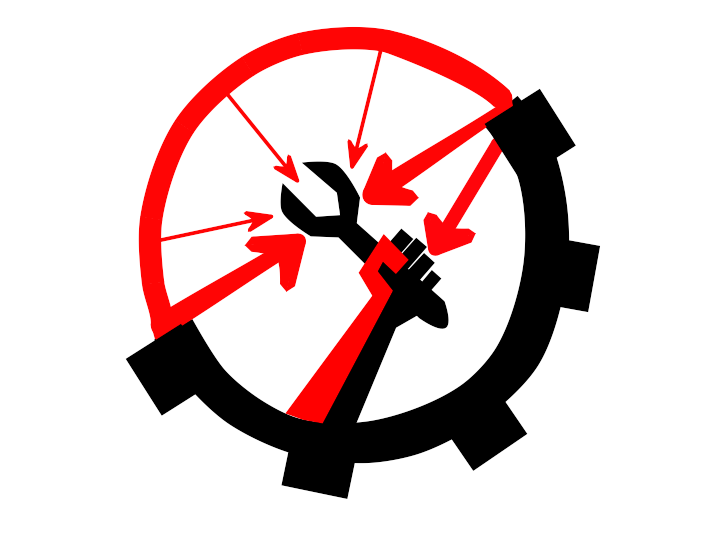 Anarcho-syndicalism is a theory of anarchism that views revolutionary industrial unionism or syndicalism as a method for workers in capitalist society to gain control of an economy and with that control influence in broader society. Syndicalists consider their economic theories a strategy for facilitating worker self-activity and as an alternative co-operative economic system with democratic values and production centered on meeting human needs.
Anarcho-syndicalism is a theory of anarchism that views revolutionary industrial unionism or syndicalism as a method for workers in capitalist society to gain control of an economy and with that control influence in broader society. Syndicalists consider their economic theories a strategy for facilitating worker self-activity and as an alternative co-operative economic system with democratic values and production centered on meeting human needs.
- Anarcho-Syndicalism - Rudolf Rocker (Audiobook)
- Anarchism and Anarcho-Syndicalism - Rudolf Rocker
- Homage to Catalonia - George Orwell
- Fighting For Ourselves - Solidarity Federation
- Anarcho-Syndicalism in the 20th Century - Vadim Damier
- On Anarchism - Noam Chomsky
Insurrectionary Anarchism
 Insurrectionary anarchism is a revolutionary theory, practice and tendency within the anarchist movement that emphasizes insurrection within anarchist practice. It is critical of formal organizations such as labor unions and federations that are based on a political programme and periodic congresses. Instead, insurrectionary anarchists advocate informal organization and small affinity group based organization. Insurrectionary anarchists put value in attack, permanent class conflict and a refusal to negotiate or compromise with class enemies.
Insurrectionary anarchism is a revolutionary theory, practice and tendency within the anarchist movement that emphasizes insurrection within anarchist practice. It is critical of formal organizations such as labor unions and federations that are based on a political programme and periodic congresses. Instead, insurrectionary anarchists advocate informal organization and small affinity group based organization. Insurrectionary anarchists put value in attack, permanent class conflict and a refusal to negotiate or compromise with class enemies.
- The End of Anarchism? - Luigi Galleani
- Let's Destroy Work, Let's Destroy the Economy - Alfredo M. Bonanno
- The Insurrectional Project - Alfredo M. Bonanno
- Armed Joy - Alfredo M. Bonanno
- The Coming Insurrection - Invisible Committee
- Insurrection vs Organization - Peter Gelderloos
- The Undesirables - Anonymous
Platformism
 Platformism is a tendency that stresses the need for tightly organized anarchist organizations that are able to influence working class and peasant movements. “Platformist” groups reject the model of Leninist vanguardism. They instead aim to “make anarchist ideas the leading ideas within the class struggle”. According to platformists, the four main principles by which an anarchist organisation should operate, are ideological unity, tactical unity, collective responsibility and federalism.
Platformism is a tendency that stresses the need for tightly organized anarchist organizations that are able to influence working class and peasant movements. “Platformist” groups reject the model of Leninist vanguardism. They instead aim to “make anarchist ideas the leading ideas within the class struggle”. According to platformists, the four main principles by which an anarchist organisation should operate, are ideological unity, tactical unity, collective responsibility and federalism.
- Organizational Platform of the General Union of Anarchists - Group of Russian Anarchists Abroad
- About the Platform - Errico Malatesta and Nestor Makhno
- Towards a Fresh Revolution - Friends of Durruti
- Manifesto of Libertarian Communism - Georges Fontenis
Synthesist Anarchism
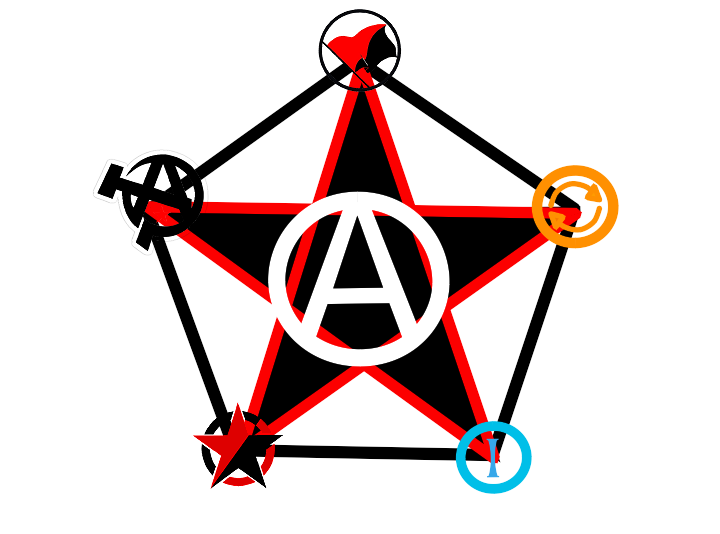 Synthesist anarchism is a form of anarchist organization which tries to join anarchists of different tendencies under the principles of anarchism without adjectives. It is the main principle behind the anarchist federations grouped around the contemporary global International of Anarchist Federations.
Synthesist anarchism is a form of anarchist organization which tries to join anarchists of different tendencies under the principles of anarchism without adjectives. It is the main principle behind the anarchist federations grouped around the contemporary global International of Anarchist Federations.
- Anarchist Synthesis - Voline
- On Synthesis - Voline
- The Anarchist Synthesis - Sebastien Faure
- Anarchism - Voltairine de Cleyre
Dual Power and Infrastructure-as-Resistance
- Dual Power: A Strategy To Build Socialism In Our Time - the Libertarian Socialist Caucus of the Democratic Socialists of America
Libertarian Marxism
Libertarian Marxism refers to a broad scope of economic and political philosophies that emphasize the anti-authoritarian aspects of Marxism. Early currents of libertarian Marxism, known as left communism, emerged in opposition to Marxist-Leninist vanguardism, it is also often critical of reformist positions, such as those held by social democrats. Libertarian Marxist currents emphasize the Marxist belief in the ability of the working class to forge its own destiny without the need for a revolutionary party or state to mediate or aid its liberation.
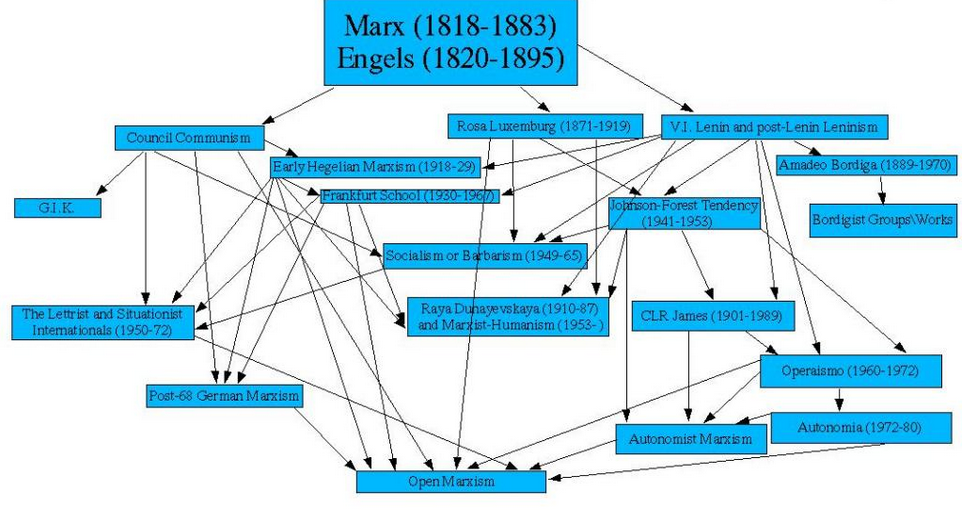
- Manifesto of the Communist Party - Karl Marx & Friedrich Engels (Audiobook)
- Grundrisse - Karl Marx
- The Civil War in France - Karl Marx
- Economic & Philosophical Manuscripts of 1844 - Karl Marx
- Libertarian Marxism? - Daniel Guérin
- Libertarian Marxism's Relation to Anarchism - Wayne Price
Autonomism
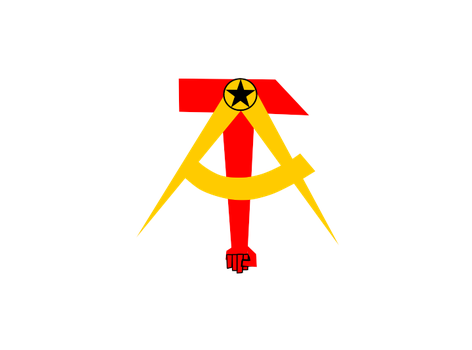 Autonomism emphasises the ability of the working class to force changes to the organization of the capitalist system independent of the state, trade unions or political parties. Autonomous social movements involve people directly in decisions affecting their everyday lives. They seek to expand democracy and to help individuals break free of political structures and behavior patterns imposed from the outside.
Autonomism emphasises the ability of the working class to force changes to the organization of the capitalist system independent of the state, trade unions or political parties. Autonomous social movements involve people directly in decisions affecting their everyday lives. They seek to expand democracy and to help individuals break free of political structures and behavior patterns imposed from the outside.
- Empire - Michael Hardt and Antonio Negri
- Multitude - Michael Hardt and Antonio Negri
- Commonwealth - Michael Hardt and Antonio Negri
- The Subversion of Politics - Georgy Katsiaficas
- Reading Capital Politically - Harry Cleaver
- Rupturing the Dialectic - Harry Cleaver
Chaulieu–Montal Tendency
The Chaulieu–Montal tendency is the political philosophy of the French libertarian socialist group 'Socialism or Barbarism' and its British counterpart 'Solidarity', following from the belief that what the working class was addressing in their daily struggles was the real content of socialism. It was critical of Leninism, rejecting the idea of a revolutionary party, and placing an emphasis on the importance of workers' councils.
- The Imaginary Institution of Society - Cornelius Castoriadis
- Figures of the Thinkable - Cornelius Castoriadis
- The Irrational in Politics - Maurice Brinton
- The Bolsheviks and Workers Control - Maurice Brinton
- Proletarian Experience - Claude Lefort
- What is Bureaucracy? - Claude Lefort
- Socialism or Barbarism - Solidarity
- Poland 1980-1982 - Henri Simon
Communization
Communization means the abolition of property itself along with any state-like institutions claiming to represent a given subset of humanity. In these accounts humanity as a whole, directly or indirectly, would take over the task of the production of goods for use (and not for exchange). People would then have free access to those goods rather than exchanging labor for money, and distribution would take place according to the maxim “from each according to his ability, to each according to his need.”
- To Our Friends - The Invisible Committee
- Communization and its Discontents - Benjamin Noys
- Bring Out Your Dead - Endnotes
- Communisation - Gilles Dauvé
- The Story of Our Origins - Gilles Dauvé
- Eclipse and Reemergence of the Communist Movement - François Martin & Gilles Dauvé
- Recollecting Our Past - La Banquise
- A World Without Money - The Friends of 4 Million Young Workers
Council Communism
 Council communism is a current of socialist thought characterized by its opposition to statism and its advocacy of workers' councils and soviet democracy as the basis for dismantling the class state. It is opposed to the party vanguardism and democratic centralism of Leninist ideologies and it contends that democratic workers' councils arising in the factories and municipalities are the natural form of working class organization and authority. Council Communism also stands in contrast to social democracy through its formal rejection of both reformism and “parliamentarism”.
Council communism is a current of socialist thought characterized by its opposition to statism and its advocacy of workers' councils and soviet democracy as the basis for dismantling the class state. It is opposed to the party vanguardism and democratic centralism of Leninist ideologies and it contends that democratic workers' councils arising in the factories and municipalities are the natural form of working class organization and authority. Council Communism also stands in contrast to social democracy through its formal rejection of both reformism and “parliamentarism”.
- Hungary '56 - Andy Anderson
- The Revolution is not a party affair - Otto Rühle
- Workers' Councils - Anton Pannekoek
- Lenin as a Philosopher - Anton Pannekoek
- Council Communism - Mark Shipway
De Leonism
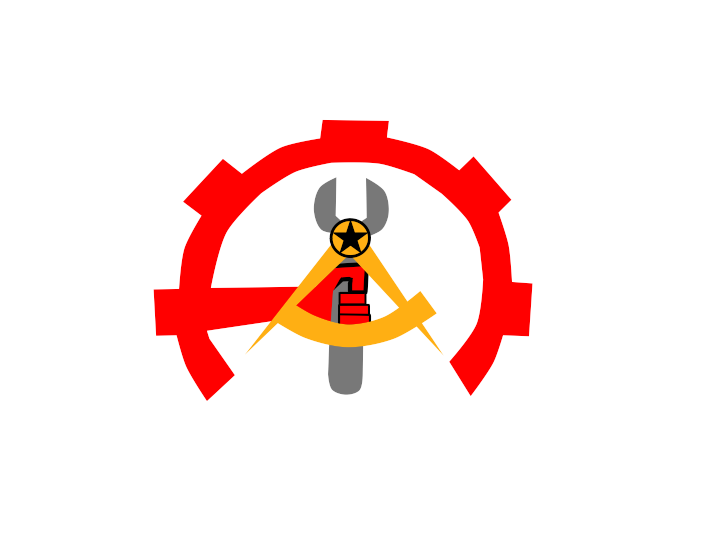 De Leonism is a libertarian Marxist current combining the theories of revolutionary syndicalism with orthodox Marxism. According to De Leonist theory, militant industrial unions as the vehicle of class struggle will bring about the change needed to establish a socialist system. Unlike Anarcho-Syndicalism, De Leonism believes in the necessity of a central government to coordinate production as well as in the use of a revolutionary political party in addition to union action to achieve its goals.
De Leonism is a libertarian Marxist current combining the theories of revolutionary syndicalism with orthodox Marxism. According to De Leonist theory, militant industrial unions as the vehicle of class struggle will bring about the change needed to establish a socialist system. Unlike Anarcho-Syndicalism, De Leonism believes in the necessity of a central government to coordinate production as well as in the use of a revolutionary political party in addition to union action to achieve its goals.
- Reform or Revolution? - Daniel De Leon
- What Means This Strike? - Daniel De Leon
- The Burning Question of Trade Unionism - Daniel De Leon
- The Socialist Reconstruction of Society - Daniel De Leon
- As to Politics - Daniel De Leon
Freudo-Marxism
Freudo-Marxism is a loose designation for philosophies that have been informed by or have attempted to synthesize the works of Karl Marx and the psychoanalytic theory of Sigmund Freud. Freudo-Marxists chose what parts of Marx's thought might serve to clarify social conditions which Marx himself had never seen, and drew on other schools of thought such as that of Weber and Freud to fill in Marx's perceived omissions.
- Character Analysis - Wilhelm Reich
- The Mass Psychology of Fascism - Wilhelm Reich
- The Sexual Revolution - Wilhelm Reich
- One-Dimensional Man - Herbert Marcuse
- Negative Dialectics - Theodor W. Adorno
- The Structural Transformation of the Public Sphere - Jürgen Habermas
- The Theory of Communicative Action - Jürgen Habermas
- Dialectic of Englightenment - Max Horkheimer & Theodor W. Adorno
- The Authoritarian Personality - Theodor W. Adorno, Else Frenkel-Brunswik, Daniel Levinson & Nevitt Sanford
Marxist Humanism
Marxist humanism concluded that, as there was no true socialist society existing anywhere in the world, a return to the fundamentals of Marxism was in order - emphasizing the Marxist Theory of Alienation and Hegel's philosophy as being the foundation of Marxism.
- A New Notion - C.L.R. James
- State Capitalism & World Revolution - C.L.R. James, Raya Dunayevskaya & Grace C. Lee
- The Black Jacobins - C.L.R. James
- Facing Reality - C.L.R. James & Grace C. Lee
- The Uniqueness of Marxist Humanism - Raya Dunayevskaya
- Dialectics: The Algebra of Revolution - Raya Dunayevskaya
- The Free Speech Movement and the Negro Revolution - Raya Dunayevskaya
- Economic Reality and the Dialectics of Liberation - Raya Dunayevskaya
- The Death of the Death of the Subject - Peter Hudis
Luxemburgism
 Luxemburgism professes a commitment to a generalized democracy in an unarticulated form, and the necessity of a revolution to bring it about.
Luxemburgism professes a commitment to a generalized democracy in an unarticulated form, and the necessity of a revolution to bring it about.
- Leninism or Marxism? - Rosa Luxemburg
- The Accumulation of Capital - Rosa Luxemburg
- Reform or Revolution - Rosa Luxemburg
Open Marxism
Open Marxism is a school of thought which draws on libertarian socialist critiques of party communism and stresses the need for openness to praxis and history through a dialectical method grounded in the “practical reflexivity” of Karl Marx's own concepts. The “openness” in open Marxism also refers to a non-deterministic view of history in which the unpredictability of class struggle is foregrounded.
- Change the world without taking power - John Holloway
- Crack Capitalism - John Holloway
- The State Debate - Simon Clarke
Situationism
Situationist theory represents an attempt to synthesize this diverse field of theoretical disciplines into a modern and comprehensive critique of advanced capitalism. The situationists recognized that capitalism had changed since Marx's formative writings, but maintained that his analysis of the capitalist mode of production remained fundamentally correct; such as his theory of alienation. They asserted that the misery of social alienation and commodity fetishism were no longer limited to the fundamental components of capitalist society, but had now in advanced capitalism spread themselves to every aspect of life and culture.
- On the Poverty of Student Life - UNEF Strasbourg
- Report on the Construction of Situations - Guy Debord
- The Revolution of Everyday Life - Raoul Vaneigem
- The Society of the Spectacle - Guy Debord
